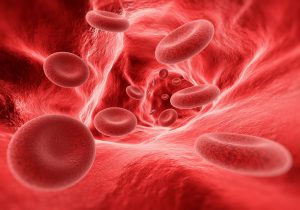There are different types of blood pressure medicine available. The following explores the different categories of medication available.
High blood pressure (also known as hypertension) is a significant factor in cardiovascular disease. For this purpose, there is a variety of blood pressure medications available for those with hypertension.
These medications include vasodilators, diuretics, beta-blockers, ACE inhibitors, alpha-blockers, central agonists, calcium channel blockers, peripheral adrenergic inhibitors, and more. The following is a brief summary of 11 different types of blood pressure medicine and the side effects you may experience.
 1. Vasodilators
1. Vasodilators
Blood vessel vasodilators cause blood vessels to relax, widen, and allow more blood to flow through your system. In addition to vasodilator drugs, there are supplements that increase the production of vasodilators like nitric oxide.
One of these supplements (L-arginine Plus) uses l-arginine, l-citrulline, and key vitamins and minerals to boost nitric oxide levels. Moreover, you do not need a prescription to use supplements but should consult your doctor if you’re currently taking blood pressure medications before adding it to your routine.
Some side effects of vasodilator medications include headaches, heart palpitations, and pain in the joints.
2. Diuretics
These work by removing excess salt and water from your body and managing blood pressure levels. Furthermore, side effects include leg cramps, weakness, fatigue, and impotence in some cases.
3. Beta-blockers
By reducing the heart rate and workload, beta-blockers help lower blood pressure. Moreover, some side effects include insomnia, asthma symptoms, cold extremities, depression, and a slow heartbeat.
4. ACE inhibitors
These drugs work by protecting the body from angiotensin, a chemical that causes the arteries to narrow. Further, side effects include loss of taste, skin rash, a chronic dry cough, and kidney damage in some rare cases.
5. Angiotensin II receptor blockers
Like ACE inhibitors, these medications block the effects of angiotensin and allow blood vessels to stay open. Moreover, some side effects include occasional dizziness and injury to a developing fetus.
6. Calcium channel blockers
By preventing calcium from entering the smooth muscle cells of the arteries, calcium channel blockers help lower blood pressure. Furthermore, side effects include headaches, swollen ankles, dizziness, constipation, and palpitations.
7. Alpha-blockers
Alpha-blockers help relax the muscle tone of vascular walls and reduce the arteries’ resistance. Moreover, some side effects include dizziness, a fast heart rate, and a drop in blood pressure after standing up.
8. Alpha-2 receptor agonists
These medications work by decreasing the activity of the sympathetic portion of the involuntary nervous system. Further, a possible side effect of alpha-2 receptor agonists is drowsiness or dizziness.
9. Combined alpha and beta-blockers
These drugs are used in IV drips to treat patients going through a hypertensive crisis and may be prescribed to those at risk for heart failure. Moreover, one possible side effect is blood pressure dropping when you stand up.
10. Central agonists
By helping to decrease the ability of blood vessels to tense up or contract, central agonists help to lower blood pressure. Furthermore, some side effects include dryness of the mouth, drowsiness, fever, anemia, constipation, and more.
11. Peripheral adrenergic inhibitors
By blocking neurotransmitters and smooth muscles from getting the message to “constrict”, these drugs help reduce blood pressure. Moreover, side effects include heartburn, diarrhea, a stuffy nose, and more.
*Keep in mind that this is not a comprehensive list of medications or side effects. The American Heart Association (AHA) provides a list of the various medications and side effects in more detail. If you want to improve your heart health without medication, consider making lifestyle changes as well as trying a heart supplement like L-arginine Plus.

